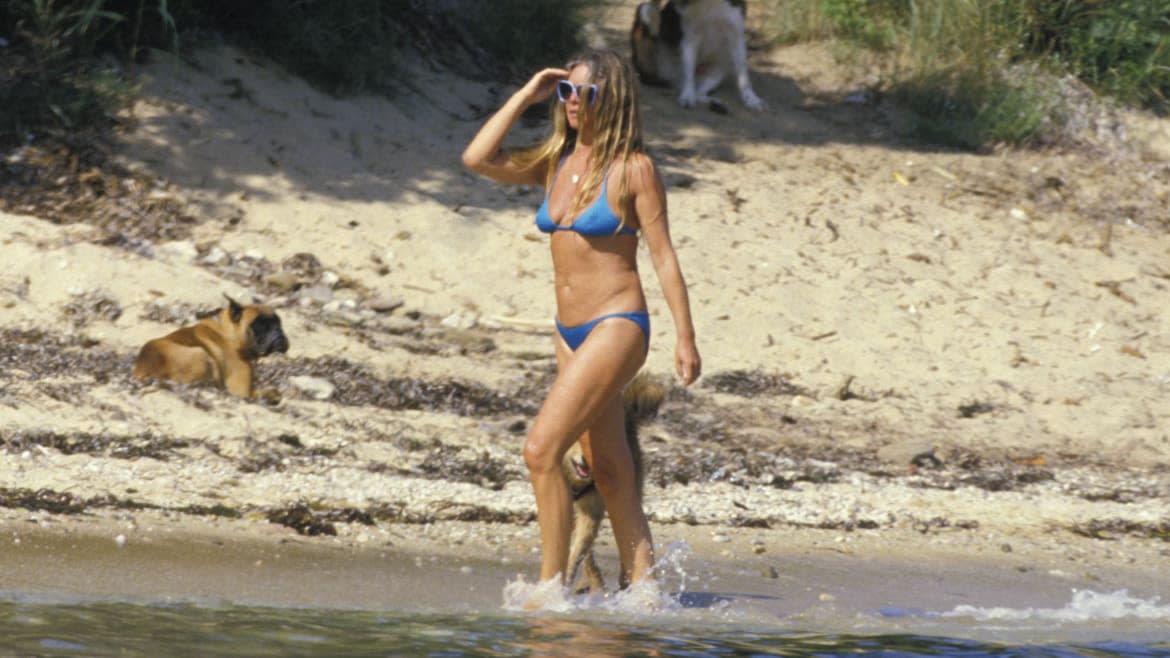Fear Grips Cannes Film Festival as France Finally Has Its #MeToo Moment

- Oops!Something went wrong.Please try again later.
At the height of its fame in the 1950s and ’60s, the Cannes Film Festival seemed to capture the essence of carefree, sexy France for the outside world: a bikini-clad Brigitte Bardot posing on the sand; photographers chasing screaming starlets down the Croisette; Hollywood moguls hosting riotous parties on their huge yachts in the bay.
Everyone was in on the fun, or so it seemed from the jaunty newsreel clips and press photos of stars letting their hair down on the Riviera.
But as Cannes launched its 77th annual edition on Tuesday, all that seemed a long-distant memory. French cinema is finally having its #MeToo reckoning, its dark underbelly clear to all, and the world’s most famous film festival has become a battleground.
In the seven years since allegations of rape against Harvey Weinstein forced Hollywood to face up to the problem of sexual abuse, France’s cultural elite, traditionally disdainful of all things American, has been reluctant to admit that it too has a problem.
But some of the most powerful men in the industry have found themselves under fire in recent months, most notably the actor Gerard Dépardieu, who is due to stand trial in October accused of assaulting two women on the set of a 2021 film—despite widespread public support and the backing of President Emmanuel Macron.
Now Cannes is gripped by rumors that 10 prominent French actors and directors are to join the rollcall of alleged abusers after a list was sent anonymously to the National Cinema Center last week. According to the Figaro newspaper, the entire world of French cinema (or some of its older male inhabitants, at least) have been “in a cold sweat” before the festival.
On Tuesday, 100 prominent women appeared together in a “photo manifesto” published by the highbrow daily Le Monde appealing for an end to the impunity enjoyed by sexual predators in some parts of French society–especially in the kind of cultural or artistic circles where successful older men have enjoyed carte blanche to do what they want with younger women.
They included actresses such as Isabelle Adjani and Emmanuelle Béart, joined by political figures, activists and multiple victims of sexual assault angered by figures showing that more than 90 percent of alleged rapes never make it to court.
“It's been easy to feel at certain times that this French #MeToo was taking its time happening,” actress Isabelle Carré told the newspaper. “I think this photo is witness to the fact that here we are, that we're ready to be together and try to really move things forward.”
Also signed up to the manifesto is the actress Judith Godrèche, the driving force in France’s #MeToo movement. Godrèche was one of the original group of actresses to bear witness against Harvey Weinstein in the New York Times’ groundbreaking 2017 expose after having run foul of the predatory producer at the 1996 Cannes festival, aged 24.
By that point she was already a star in France, having appeared in her first film at 13, the year before she began a lengthy sexual relationship with the New Wave director Benôit Jacquot, 25 years her senior. Earlier this year Godrèche officially accused Jacquot of rape, although he insists she was already 15 and above the legal age of consent, and she leveled a similar charge against another veteran director, Jacques Doillon.
On Wednesday, the festival is due to screen a short film Moi Aussi (Me Too) about sexual abuse that Godrèche decided to make after hundreds of women from around France shared their stories of abuse with her.
Only hours before the festival’s opening ceremony, another woman to have featured in Le Monde’s photo-manifesto, the English actress Charlotte Lewis, learned that she had lost a defamation case against the 90-year-old Roman Polanski, who fled the United States in 1978 after admitting having sex with a 13-year-old girl. In a Cannes press conference in 2010, Lewis accused the director of having raped her in 1983 during a casting in Paris, a charge Polanski later dismissed as an “odious lie”—a phrase that Lewis tried to claim was defamatory.
Get the Daily Beast's biggest scoops and scandals delivered right to your inbox. Sign up now.
Stay informed and gain unlimited access to the Daily Beast's unmatched reporting. Subscribe now.

